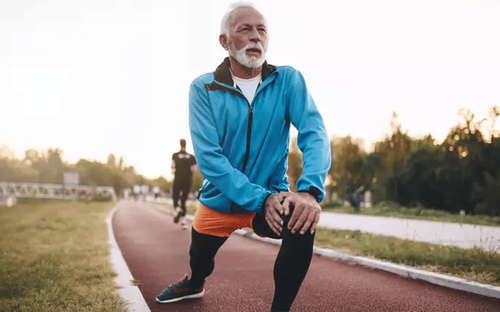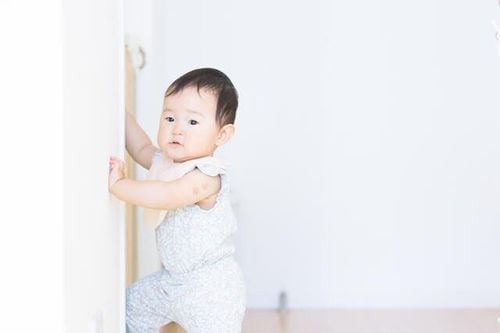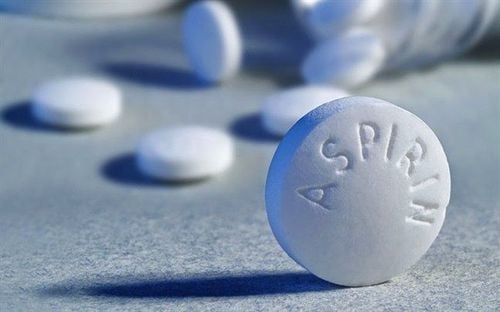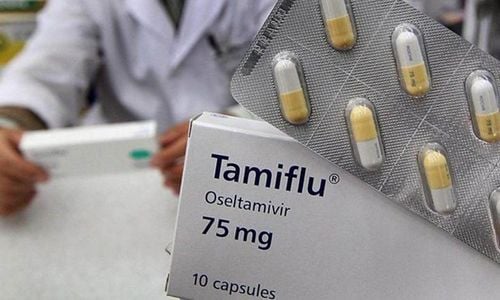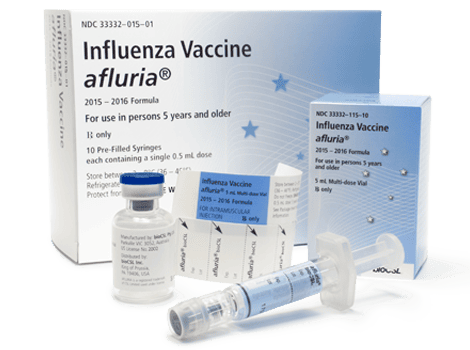This is an automatically translated article.
The flu isn't just a cold, it's caused by a contagious virus that's spread through fluids produced by coughing and sneezing. Sometimes the flu can cause serious complications that do not rule out death, especially in the elderly, pregnant women or people with low immunity, the risk of complications such as pneumonia can be severe. may be unavoidable. Here are 7 ways to keep your family healthy during cold and flu season.
1. Wash your hands
When you keep your hands clean, the virus is immediately eliminated. Therefore, instruct your family members to regularly wash their hands after using the toilet, before and after eating, and after coughing or sneezing. Use soap and warm water, and wash for 15 to 20 seconds to make sure any virus or dirt on your hands is completely removed. In addition, you should also make sure that whoever takes care of your baby knows how to bathe regularly.
Some tips to apply: Always keep alcohol-based hand sanitizer in your car or bag to always clean your hands while outside and on the go. At the same time, you should use the extra wipes provided at the supermarket to wipe the cart handle before shopping.

Rửa tay thường xuyên bằng xà phòng và nước ấm giúp loại bỏ hoàn toàn virus
2. Disinfection
Cold and flu viruses can live on surfaces for as long as three hours. So consider washing doorknobs, countertops, and certain other surfaces with a disinfectant that kills viruses or a solution of bleach and water (a solution of liquid detergent can be made according to recipe 1/ 4 cups bleach in a gallon of water). Especially if someone in the house has been sick, you should do the cleaning of light switches, phones, doorknobs, keyboards and other things that family members share. Furthermore, you need to wash cups and eating utensils with soap and hot water between uses.
Some tips to apply: You can find easy and cheap recipes for homemade cleaning solutions online or in books. Ingredients like vinegar, tea tree oil, and fenugreek aren't as strong as bleach and some commercial disinfectants, but they're generally safer and still effective.
3. Flu shot
All of your family members need to be protected from flu season viruses from school and daycare to work and back. The Centers for Disease Control and Prevention recommends that most children (starting at 6 months of age) and adults get a flu shot every year, preferably at the end of October, and get it as often as possible. The sooner the better to prevent colds.
Some advice to apply: If you are pregnant, you can and should get a flu shot to prevent flu for both you and your unborn baby. You should even see your doctor for further advice to get a flu shot during pregnancy so that you can protect your newborn baby in the future.
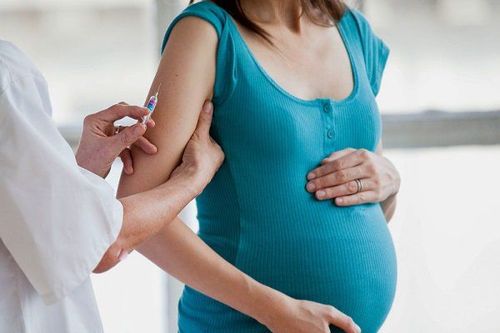
Tiêm phòng cúm giúp bảo vệ sức khỏe cho cả mẹ và thai nhi
4. Prohibit passive smoking
Secondhand smoke is extremely dangerous for babies. In addition, it weakens a child's lungs, makes them more susceptible to ear infections, and doubles the risk of sudden infant death syndrome (SIDS). At a minimum, make sure no one smokes anywhere in your home, and there are no exceptions.
Cigarettes are a very effective device for spreading harmful chemicals, including nicotine, carbon monoxide, and many potent human carcinogens, throughout your home. If you light it up in one room, the smoke will be detectable throughout the entire house within minutes - including the baby's room.
Many chemicals and small particles create dangerous smoke that instantly clings to everything in the home, including clothes, toys, bottles, carpets, walls, furniture and even stainless steel. (This mixture of residual tobacco smoke pollutants is called secondhand smoke.)
Over the following weeks and months, these pollutants are slowly released back into the air, the very air your baby breathes. Babies can also be exposed if the mother puts contaminated objects in her mouth or sleeps on a pillow that has become a reservoir for smoke pollutants.
Researchers recently looked for traces of secondhand smoke in homes where smokers try to protect babies by never lighting up in the same room as the baby. Levels of nicotine and other chemicals in the home are about five to seven times higher than those in the homes of non-smokers. Even more importantly, urine tests showed that infants in households with smokers were exposed to eight times more smoke than in homes of non-smokers.
In fact, there have been elevated levels of tobacco pollution even in homes where smokers only lighted outside. Smokers spread pollutants wherever they go, seeping into their clothes, skin, hair, and breath. Therefore, before approaching babies, smokers should wear clean clothes (which they have not worn while smoking), wash their hands and face (especially after smoking), and never let babies suck their fingers.
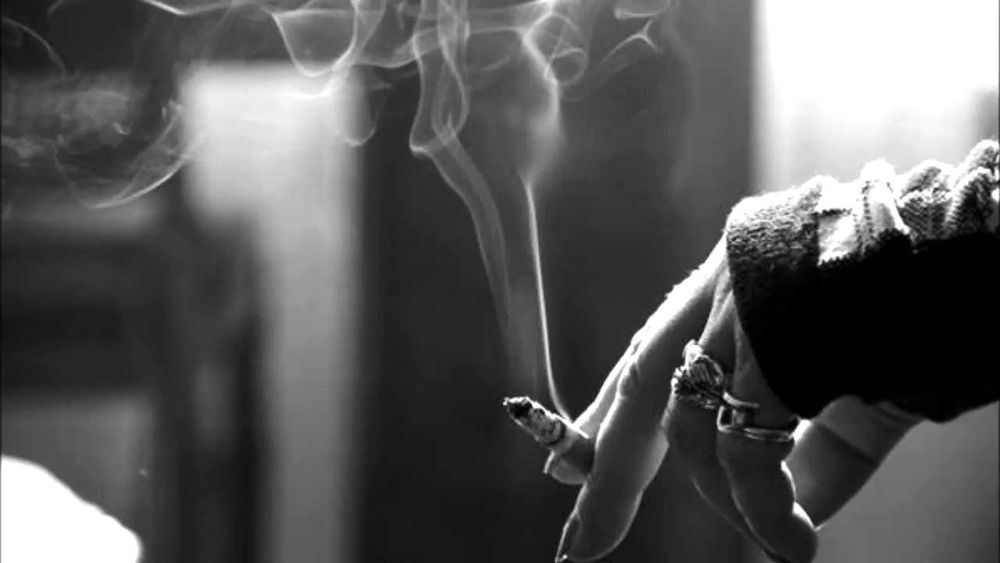
Khói thuốc vô cùng nguy hiểm cho sức khỏe của cả trẻ sơ sinh và người lớn
In addition, there are several studies of indoor pollution levels after smokers moved out and non-smokers moved in. The results show that homes where people regularly smoke become reservoirs of secondhand smoke. Non-smokers can be exposed to these chemicals for months after a smoker moves out, even after the house has been cleaned. So, before you rent an apartment or buy a house, ask if previous residents are averse to eating.
If your home is already contaminated with secondhand smoke, try cleaning the air by opening some windows and doors. Using a highly efficient particulate air (HEPA) filter can help for a while, but you'll have to change or clean the filters often as they quickly become clogged.
Vacuuming with a machine equipped with a HEPA filter is also a good idea. Wipe surfaces with a damp cloth and frequently wash toys, blankets, and any other objects that your baby might get in his mouth.
Shielding your baby from secondhand smoke is unlikely to be effective in a smoker's home, but protecting your baby from harmful substances is extremely important. So if you are concerned about your child's health, urge and support smokers in your home to quit. That's the best protection your baby can get.
Some advice to apply: Secondhand smoke puts children at higher risk of upper respiratory problems than children living in smoke-free environments. Children who live with smokers get colds more often and their colds last longer than children who are not exposed to secondhand smoke. Also be aware of secondhand smoke in other settings, such as when you're visiting friends or relatives.
5. Cover your mouth when coughing and sneezing
To avoid spreading germs, teach children to cover their sneezes or coughs by using a disposable tissue. If they sneeze into a tissue (or bare hands), they will need to wash their hands immediately.
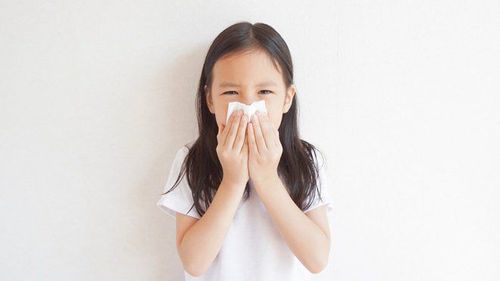
Che miệng khi ho hoặc hắt hơi giúp giảm nguy cơ lây lan mầm bệnh
6. Avoid contact
Protect children by avoiding close contact with children who have a cold or flu or even sick adults. If your child's best friend is sniffling and sneezing, it's not the right time to co-sleep with your baby.
7. Build a healthy body
A healthy immune system depends on a healthy body and a healthy immune system better equipped to fight viruses. If you are breastfeeding, keep it up for as long as possible. The antibodies in breast milk can protect against many types of germs. Feed your older children a well-balanced diet, and encourage them to exercise regularly and get plenty of sleep.
Advice: If your child keeps getting colds despite your best efforts, don't despair. Perfectly healthy people often catch colds. So being sick is not necessarily a sign of a weak immune system. Learn the truth about this and dozens of other myths about colds and flu to take timely and reasonable cold prevention measures.
If a cold and flu lasts for more than a week, has a high fever, uses fever-reducing drugs but is not effective, sore throat area is sore, prolonged cough, shortness of breath, rapid breathing, fatigue, .. The patient should quickly go to medical facilities for treatment because the patient may have a viral infection, the flu causes respiratory complications or the flu promotes the exacerbation of people who are sick. pre-existing chronic disease.
Vinmec International General Hospital is one of the hospitals that not only ensures professional quality with a team of leading medical doctors, modern equipment and technology, but also stands out for its examination and consultation services. comprehensive and professional medical consultation and treatment; civilized, polite, safe and sterile medical examination and treatment space.
If you have a need for consultation and examination at Vinmec Hospitals under the nationwide health system, please book an appointment on the website for service.
Please dial HOTLINE for more information or register for an appointment HERE. Download MyVinmec app to make appointments faster and to manage your bookings easily.
Reference source: babycenter.comSEE ALSO:
Cold and flu are completely different 10 signs that distinguish the flu from a cold What should parents do when a child has a cold and vomits a lot? Recommendations for prevention of seasonal flu by the Ministry of Health Why do influenza virus strains often change?




